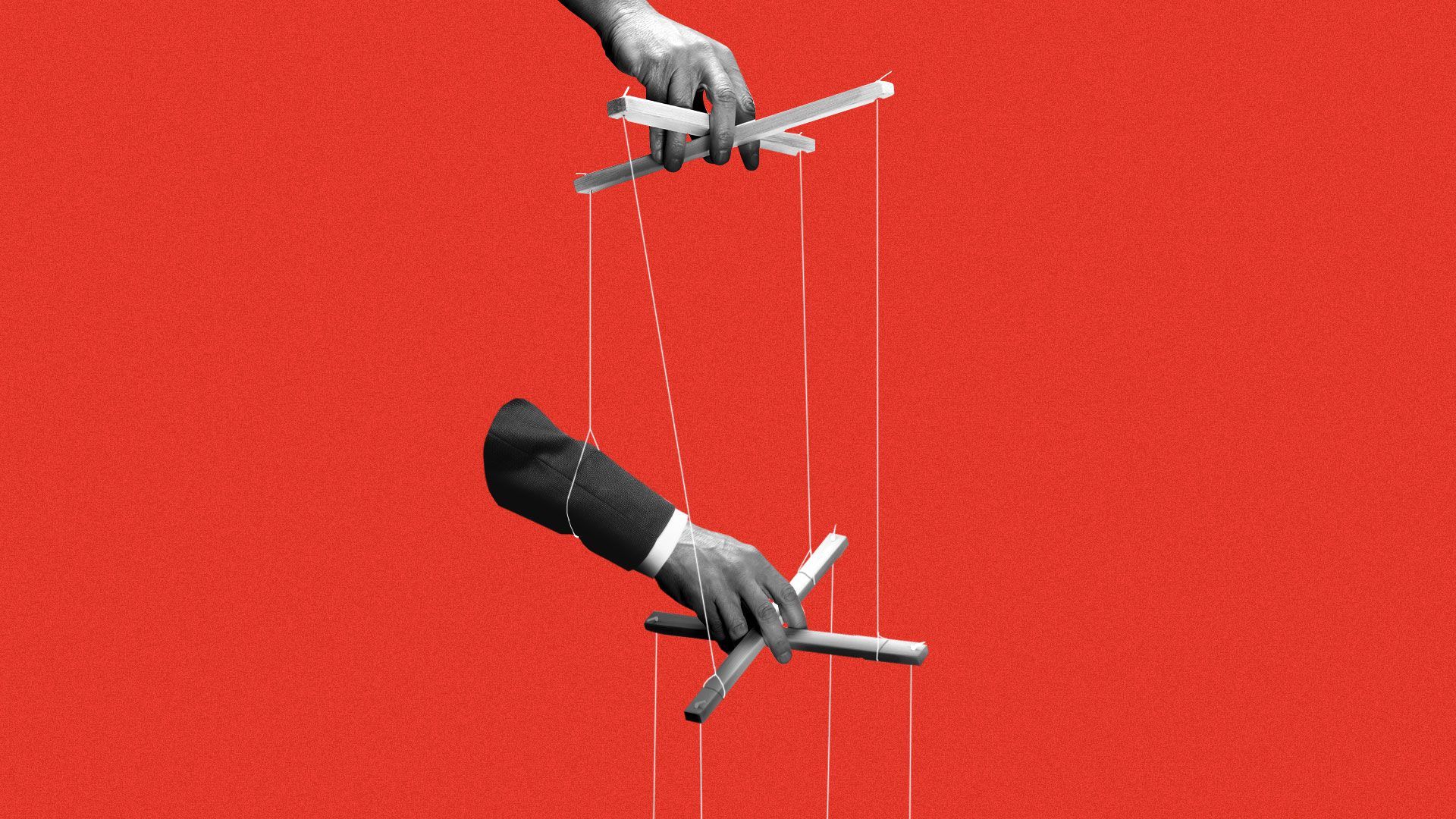When U.S. politicians exploit foreign disinformation
Add Axios as your preferred source to
see more of our stories on Google.

Illustration: Aïda Amer/Axios
U.S. political actors will keep weaponizing the impact of widespread foreign disinformation campaigns on American elections, making these operations that much more effective and attractive to Russia, China, Iran or other countries backing them.
Why it matters: Hostile powers’ disinformation campaigns aim to destabilize the U.S., and each time a domestic politician embraces them, it demonstrates that they work.
Where it stands: There are several ways this dynamic will play out this fall and, if unchecked, in future elections.
1. U.S. politicians will amplify these false messages for their own electoral ends.
- The First Amendment bars regulating or censoring the speech of domestic political actors and press outlets, even when it amounts to disinformation and propaganda.
- Norms are the only thing stopping officials and candidates from becoming loudspeakers for a foreign active measures campaign. And norm-smashing politicians including the president have already shown themselves eager to — intentionally or not — boost disinformation from hostile states.
2. The call will come from inside the house.
- U.S. politicians or their proxies will also be the source of falsehoods that foreign actors will then be able to seize on and boost online as part of a disinformation campaign.
- Domestic political actors can then cite this publishing or social media activity as “evidence” of the very falsehoods they themselves generated.
3. The threat and basic contours of disinformation campaigns may be obscured as they get sucked into the partisan maelstrom of U.S. politics.
- President Trump has long dismissed the reality of Russia’s 2016 meddling. And now Democrats argue the Trump administration is being deliberately vague about disinformation threats posed by China, Iran and Russia in what they contend is an effort to gloss over the pro-Trump campaign pushed by Russia specifically.
- In response to those complaints, intelligence officials provided classified briefings to the House about the three nations’ interference campaigns. That only further enraged Democrats, who are demanding greater transparency, particularly about Russia’s plans.
- Intelligence officials promised more public disclosures on 2020 interference in a less-contentious Senate briefing, lawmakers present said.
- These briefings are “unprecedented,” says an official with the Office of the Director of National Intelligence, marking the first classified election interference briefings given to all of Congress, including lawmakers who aren’t used to receiving classified information.
Between the lines: The American public will benefit from more information about covert foreign electoral interference campaigns. But with intelligence sources and methods to protect and, yes, political sensitivities to consider, there will always be limits to what intelligence officials will say openly.
- Meanwhile, closed-door briefings allow politicians and other officials to selectively leak information that can then be repackaged for purposes of domestic political warfare.
- There’s a ratchet effect here. Each time officials disclose more intelligence, that very act of disclosure may power the spread of more disinformation.
Think of hypothetical scenarios like Republicans learning that Iran is boosting Democrats in the interest of reviving a nuclear deal, or Democrats being briefed that Russia is pushing nationalist GOP candidates for Congress with the aim of sabotaging NATO.
- U.S. politicians may soon volley perpetual accusations of malign foreign support against members of the opposing party, citing U.S. intelligence community assessments. Guilt by association is a powerful tool.
The bottom line: Disinformation campaigns are low-cost and easy to replicate. The NSA can fizzle a troll farm's servers, but it can't stop Russia from simply purchasing and deploying new ones. And as long as these interference campaigns are successful, foreign states will devote the necessary resources to seeing them through.
- Much of the responsibility falls to elected officials (and, to a lesser extent, the media and tech platforms), not U.S. intelligence agencies, to stop foreign propaganda from proliferating stateside.
